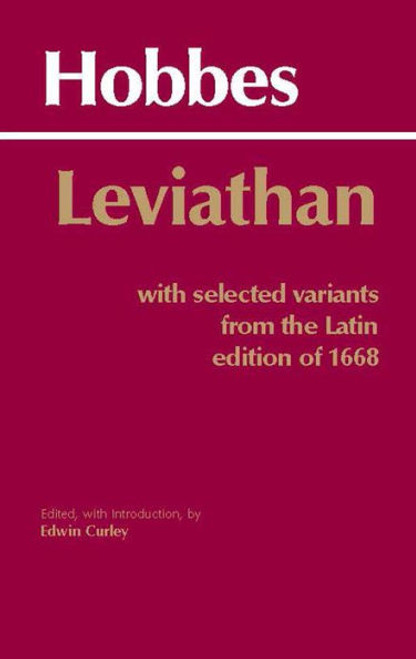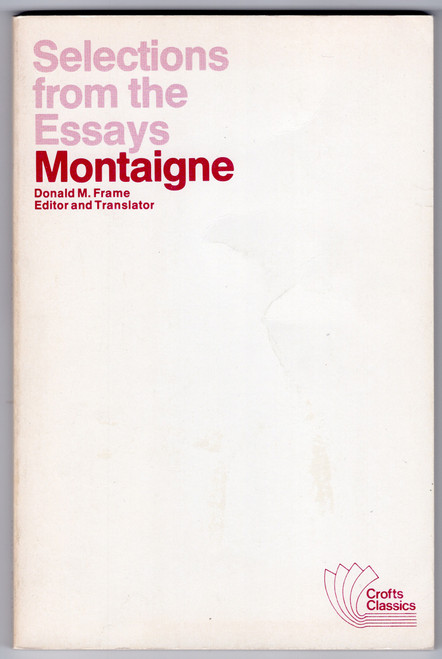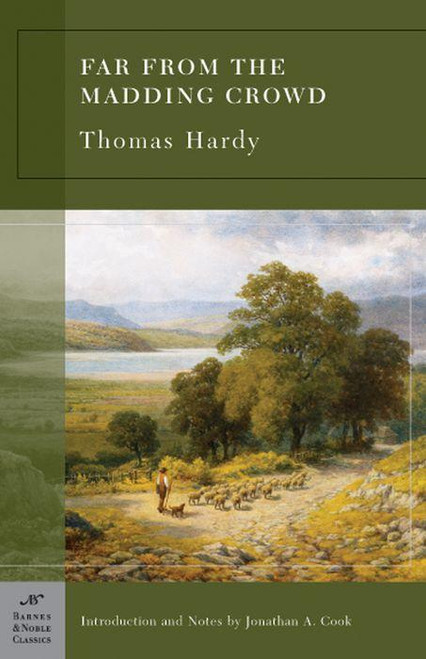This new edition of Hobbes' masterpiece is uniquely suited to meet the needs of both student and scholar. It offers a brilliant introduction by Edwin Curley, modernized spelling and punctuation of the text, and a key annotative feature found in no other edition: the inclusion, along with historical and interpretive notes, of the most significant variants between the English version of 1651 and the Latin version of 1668. A glossary of seventeenth-century English terms and indexes of persons, subjects, and scriptural passages help make this the most thoughtfully conceived edition of Leviathan available.
Editorial Reviews
"Plainly the best edition of Leviathan. Superbly edited and indexed, with footnote passages from the Latin edition, a helpful glossary, biographical and autobiographical material, and a translation of Hobbes on the Nicene Creed, it will be an indispensable study tool. Curley’s introduction is masterly." -Jerome Schneewind, Johns Hopkins University
"A marvelous resource for undersgraduates. This edition combines superb scholarship with first-rate interpretation, and presents the historical background of the work so as to make both the Leviathan, and its author, come alive." -Jean Hampton, University of Arizona
"Students, specialists, and anyone who simply wants to understand Hobbes will find this volume outstandingly useful. An excellent edition of the greats classic of political theory in the English language." -Johann Sommerville, University of Wisconsin
"A scholar's edition at a student price!" -Harvey Mansfield, Harvard University
"The translation of Latin variants and the index of Biblical citations mark this off as by far the best edition of the Leviathan." -Thomas Pangle, University of Toronto
About the Author
Thomas Hobbes was born the son of a cleric on April 5, 1588, in the town of Malmesbury in the county of Wiltshire, England. He was schooled in the Scholastic tradition at Oxford, and from the time he received his bachelor of arts degree in 1607, Hobbes served as a private tutor to various wealthy nobles in England and France. This career offered him access to well-stocked libraries and provided the opportunity to travel throughout Europe. During the next forty years, Hobbes would meet such famous people as Galileo, Descartes, and Gassendi, whose ideas were to influence him greatly.
In 1640, during one of the many periods of political turmoil he was to witness, Hobbes wrote a short work on the Elements of Law, Natural and Politique, which supported absolute monarchy. When the political tide turned in favor of the anti-royalists, Hobbes escaped to Paris. While there, he was to write De cive in 1642, a work that expanded his political theory. When Civil War broke out in England, Hobbes sought to bring his political philosophy to the English audience with the publication of Leviathan in 1651. This work was to be his most powerful restatement of absolute government grounded on a compact between the ruled and a sovereign authority that would protect the citizenry and secure peace. Since his political philosophy supported neither the divine right of a monarchy based upon succession nor the independent authority of the church, Hobbes was viewed with suspicion by both royalists and the ecclesiastical community.
Hobbes returned to England in 1651, after an eleven-year exile, and took up residence in London. After the Restoration in 1658, he lived on a modest pension from King Charles II and continued to write. In 1668 he wrote Behemoth, a history of the Civil War, but it was suppressed in manuscript until 1682 when it was published posthumously. Having borne the brunt of political in-fighting for many years, Hobbes finally retired to the town of Hardwick, where he died on December 4, 1679, at the age of 91.
Edwin Curley is Professor of Philosophy, University of Michigan, Ann Arbor







